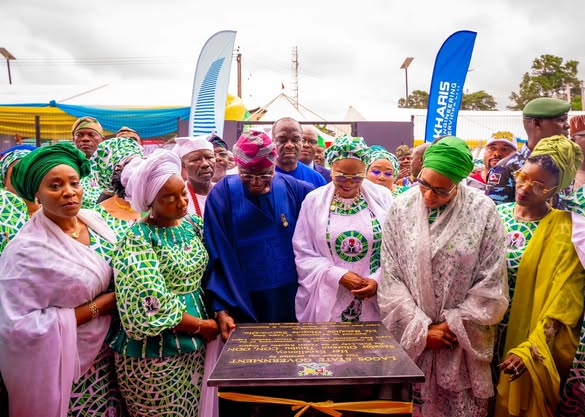
The First Lady of Nigeria, Senator Oluremi Tinubu, has commissioned a new leather processing and manufacturing hub in Mushin, Lagos State, in a landmark move aimed at boosting local production, job creation, and export revenue. The hub, named in her honour, reflects her long-standing commitment to women’s empowerment and community development.
According to officials, the facility is projected to create 10,000 direct jobs and positively impact over 150,000 artisans across Lagos. In a deliberate bid to promote inclusion, 70 percent of the jobs will go to women and young people.
The hub is fully equipped to produce shoes, bags, belts, and garments, allowing Nigeria to process its own hides and skins domestically rather than exporting them in raw form. Authorities project that, with time, the factory could generate over $250 million in annual export earnings, strengthening Lagos’ position as a creative and industrial hub.
For decades, Nigeria has grappled with the paradox of being a leading livestock producer while exporting raw hides and skins, only to import finished leather goods at higher costs. Previous government interventions, such as small-scale tanneries and training centres, often struggled due to weak infrastructure, lack of financing, and limited market access.
The Mushin hub is therefore seen as a step forward—shifting from raw material export to value addition, while empowering artisans who have long relied on informal, small-scale operations.
The commissioning ties into a broader narrative of economic diversification and industrialization in Nigeria. With oil revenues declining, sectors like agriculture, manufacturing, and creative industries are being positioned as new growth drivers.
For Lagos, the hub represents an extension of its “Made in Lagos” agenda, which emphasizes local production, SME growth, and global competitiveness. On the African continent, it aligns with the AfCFTA (African Continental Free Trade Area), offering opportunities for Nigerian leather products to reach wider regional and global markets.
Beyond economics, the initiative reflects social investment—empowering women, supporting youth entrepreneurship, and creating pathways for small brands and artisans to scale up into global fashion supply chains.
The leather hub in Mushin is not just a factory—it is a statement of intent. By combining industrial policy with social empowerment, Lagos is laying the foundation for a sustainable, inclusive, and export-oriented economy.
As one official put it, the true success will not be in export figures alone but in the everyday lives of the cobbler in Mushin, the tanner in Oko-Oba, and the young designer in Yaba whose crafts can now reach the world.
📩 Contact us: info@stonereportersnews.com
🌍 Website: stonereportersnews.com
🔗 Follow Stone Reporters for trusted updates on governance, labour, and economic development.
📘 Facebook: Stone Reporters | 🐦 X (Twitter): @StoneReportNews


Add comment
Comments